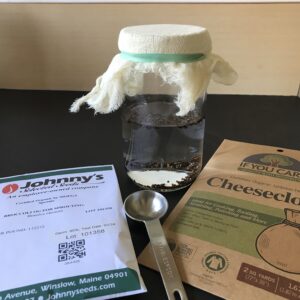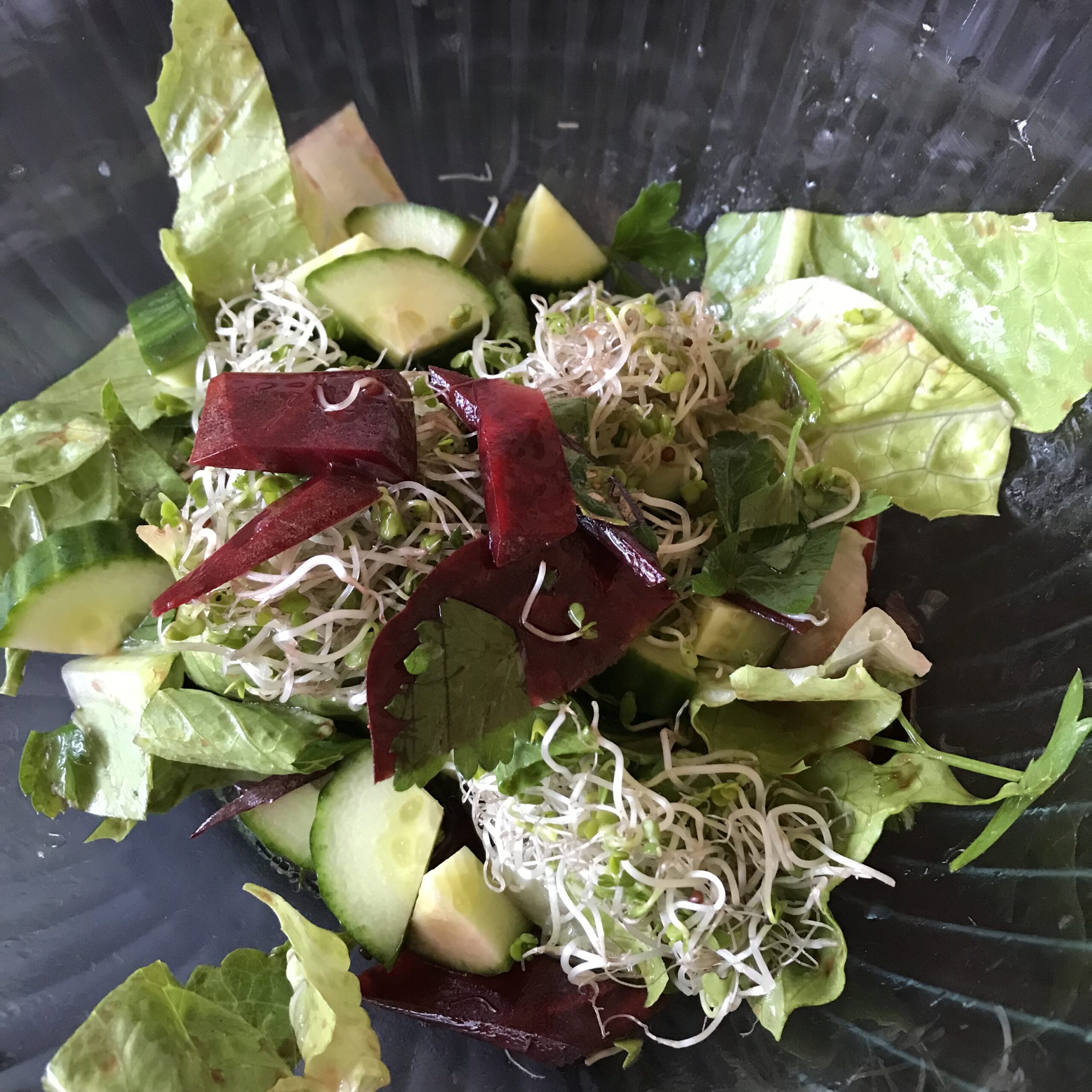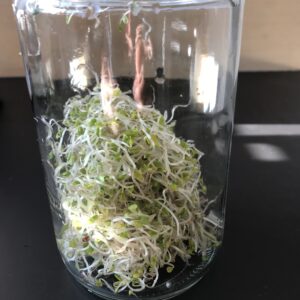Eat Your Broccoli Sprouts!
Broccoli sprouts, sometimes marketed as microgreens, are an excellent source of protein, vitamins, minerals, fiber, and phytochemicals. Sulforaphane from broccoli sprouts is a phytochemical that “should be part of a re-invention of our healthcare”, according to researchers at Johns Hopkins School of Medicine and Fred Hutchinson Cancer Research Center.
Broccoli sprouts provide significant health benefits, primarily due to their high levels of sulforaphane. Regular consumption can contribute to reduced inflammation, enhanced detoxification, cancer prevention, improved heart and brain health, and better blood sugar regulation. Including broccoli sprouts in your diet can be a simple and effective way to boost overall health.
To receive the benefits of these tiny cancer fighters, broccoli sprouts must be eaten raw. The heat from cooking destroys the enzyme responsible for making the cancer-fighting compound sulforaphane.
They’re fresh, inexpensive when homegrown, and grow quickly indoors, in a wide-mouth jar. Easy directions are provided on the seed packaging, or you can enjoy endless instructional videos on YouTube! Commercially grown broccoli sprouts are also available in natural food markets.
Broccoli sprouts provide 7 health benefits
- Antioxidant Properties: Sulforaphane in broccoli sprouts stimulates the production of antioxidant enzymes in the body, helping to neutralize free radicals and reduce oxidative stress. This can protect cells from damage and reduce the risk of chronic diseases.
- Anti-Inflammatory Effects: Sulforaphane has been shown to inhibit inflammatory pathways in the body. This can help reduce inflammation, which is linked to various conditions such as heart disease, arthritis, and autoimmune diseases.
- Cancer Prevention: Studies suggest that sulforaphane may help prevent cancer by promoting the detoxification of carcinogens, inhibiting the growth of cancer cells, and inducing apoptosis (programmed cell death) in cancerous cells. Broccoli sprouts are particularly rich in glucoraphanin, the precursor to sulforaphane.
- Detoxification: Sulforaphane enhances the body’s detoxification processes by activating phase 2 detoxification enzymes. These enzymes help to eliminate harmful substances from the body, including environmental toxins and pollutants.
- Improved Heart Health: The anti-inflammatory and antioxidant effects of sulforaphane can contribute to better cardiovascular health. It may help lower blood pressure, reduce cholesterol levels, and improve overall heart function.
- Support for Brain Health: Sulforaphane has neuroprotective properties that may benefit brain health. Research suggests it could help protect against neurodegenerative diseases, reduce inflammation in the brain, and support cognitive function.
- Blood Sugar Regulation: Some studies indicate that sulforaphane can improve insulin sensitivity and help regulate blood sugar levels, which is beneficial for individuals with type 2 diabetes or those at risk of developing it.

Use specially processed, organic broccoli seeds for sprouting and raw consumption. Some sources are Johnny’s Seeds and True Leaf Market.
Your local natural food market or gardening center may stock them.
This batch of seeds is fully sprouted, ready for sun exposure for maximum chlorophyll development before eating them.

A simple salad of raw beets, cucumber, romaine, and broccoli sprouts with a balsamic-olive oil vinaigrette dressing promotes good health.
References:
Fahey, J. W., & Kensler, T. W. (2021). The challenges of designing and implementing clinical trials with broccoli sprouts… and turning evidence into public health action. Frontiers in Nutrition, 8, 648788. https://doi.org/10.3389/fnut.2021.648788
Jed W. Fahey 1,2,3,4*† and Thomas W. Kensler 5,6*†
1 Department of Medicine, Division of Clinical Pharmacology, Johns Hopkins School of Medicine, 2 Department of Psychiatry and Behavioral Sciences, Johns Hopkins School of Medicine, 3 Department of Pharmacology and Molecular Sciences, Johns Hopkins School of Medicine, 4 Department of Nutrition and Food Studies, College of Health and Human Services, George Mason University, 5 Translational Research Program, Fred Hutchinson Cancer Research Center, 6 Department of Environmental Health and Engineering, Johns Hopkins Bloomberg School of Public Health
Bricker GV, Riedl KM, Ralston RA, Tober KL, Oberyszyn TM, Schwartz SJ. Isothiocyanate metabolism, distribution, and interconversion in mice following consumption of thermally processed broccoli sprouts or purified sulforaphane. Mol Nutr Food Res. 2014 Oct;58(10):1991-2000. doi: 10.1002/mnfr.201400104


